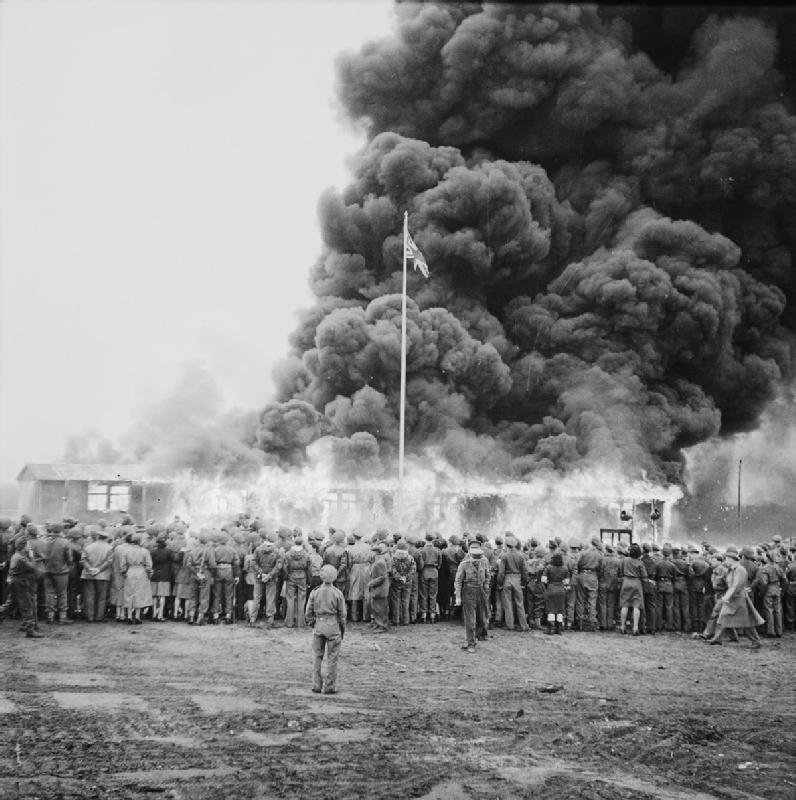15 April 1945: Liberation of Bergen-Belsen
On 15 April 1945, British troops liberated Bergen-Belsen Concentration Camp.

British troops burning buildings after the liberation of Bergen-Belsen
The camp was established in the north of Germany in 1940 and originally functioned as a prisoner of war camp, initially housing French and Belgian soldiers. In July 1941 Soviet prisoners of war began arriving at the camp. Between July 1941 and April 1942, 14,000 of the 21,000 Soviet prisoners of war died there of starvation, disease and exposure.
In April 1943 part of the camp was handed over to the SS who established a ‘detention camp’, primarily for Jewish prisoners. Roma people, Jehovah’s Witnesses, gay men, ‘asocials’ and criminals were also imprisoned at Bergen-Belsen.
As Allied forces liberated concentration camps closer to the frontline, the Germans transferred prisoners from these camps to Bergen-Belsen. In the period from July 1944 to April 1945 the camp population grew from approximately 7,300 to over 90,000. The inhumane conditions in the camp, including lack of adequate food and water, poor sanitation, overcrowding and lack of shelter led to the spread of diseases such as dysentery, typhoid fever and tuberculosis. In the first few months of 1945, tens of thousands of prisoners died.
Renee Salt BEM was sent to the camp in March 1945. She remembers:
Soon after arrival at Belsen, we found ourselves covered from head to foot with lice. The camp was completely infested. No food was coming into the camp and the water supply had been cut off. Like leaves that fall from a tree, people were falling down and dying. There was sheer chaos in the camp.
When the British Army liberated Bergen-Belsen on 15 April 1945 they found around 53,000 prisoners, the majority of whom were emaciated and suffering from various diseases. Thousands of dead bodies lay unburied on the camp grounds. Hear broadcaster Richard Dimbleby describe the scenes of the camp, when he arrived shortly after liberation.
Liberation did not mean an end to the suffering of the prisoners. In the days following the arrival of the British Army more than 13,000 people died as a result of their treatment at the hands of the Nazis. More than 70,000 prisoners, the majority of whom were Jewish, were murdered at Bergen-Belsen.
Following the liberation of Bergen-Belsen, the camp buildings were burnt to the ground to stop the spread of disease. British troops established a displaced persons’ camp in a nearby German military school to house over 12,000 Holocaust survivors. This camp was in operation until 1951.


